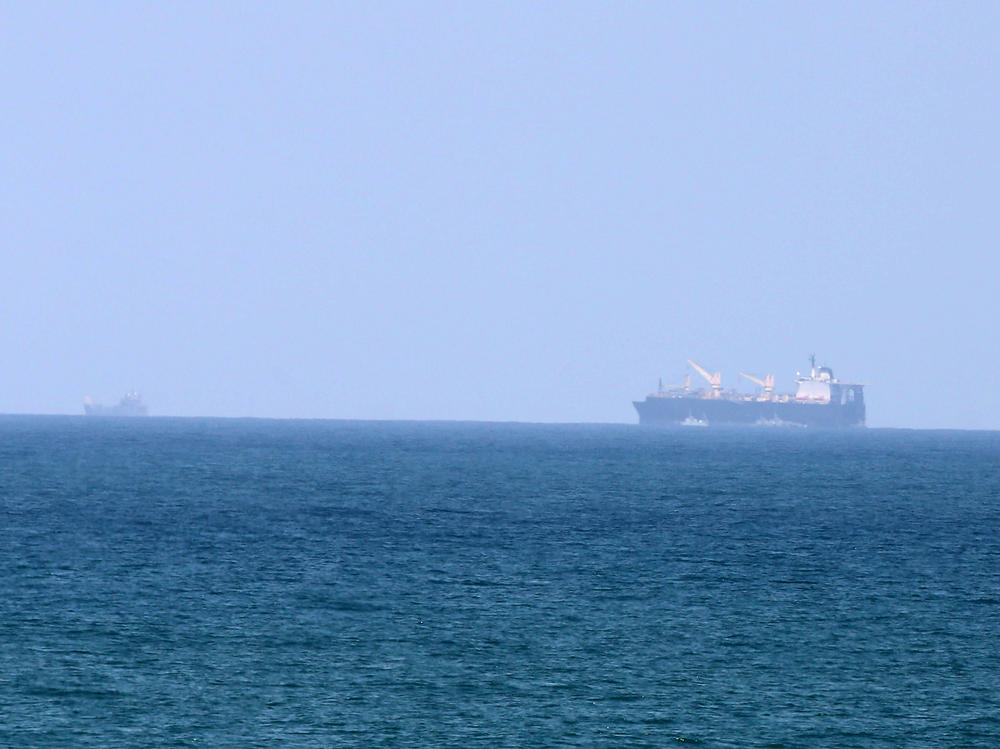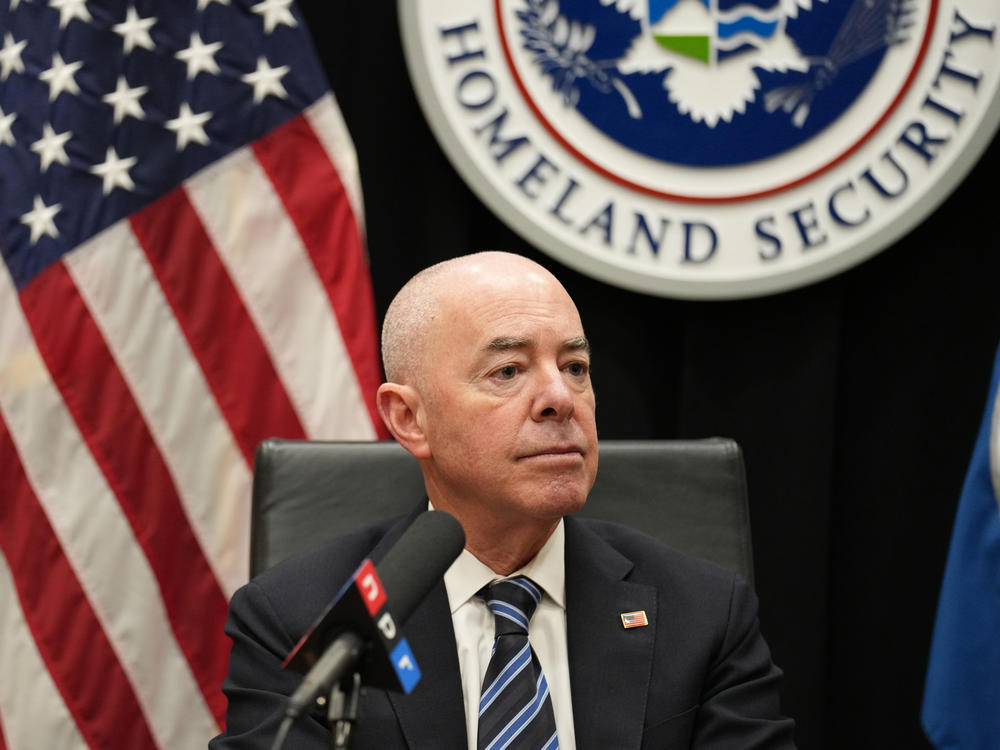Section Branding
Header Content
Aid workers are doubtful of a U.S.-built pier near Gaza; RFK Jr.'s dead brain worm
Primary Content
Good morning. You're reading the Up First newsletter. Subscribe here to get it delivered to your inbox, and listen to the Up First podcast for all the news you need to start your day.
Today's top stories
A vessel carrying aid set sail from Cyprus yesterday toward an American-built floating pier off the coast of Gaza. U.S. officials say the pier will help address the worsening humanitarian crisis in the besieged enclave. But aid groups say there are significant unanswered questions — including what difference it would make if Israel keeps land borders closed.
- Aid workers say that what's lacking isn't resources or aid but "the political will to get it" into Gaza, NPR's Jane Arraf reports on Up First. One official called the pier "a joke." Pediatrician John Kahler, co-Founder of MedGlobal, said what they needed was opening the gates to let food into what he described as a "lab of malnutrition," not "silly piers or silly airdrops." Another medical aid official noted that the pier will cost $320 million, which could instead be used to buy a large number of truckloads of aid.
For a second year in a row, medical school graduates were less likely to apply for residencies in states with abortion bans and other significant abortion restrictions, according to new statistics from the Association of American Medical Colleges. The organization found a decreased interest in residencies in these states among aspiring doctors across specialties — not just in the ones most likely to treat pregnant patients. In its analysis, the AAMC says the declining interest "may negatively affect access to care in those states.
"Two months after gangs in Haiti orchestrated a coup and took control of the capital, the country is making some progress in stabilizing its leadership. A transitional council is working on appointing a new prime minister, while a multi-national force led by Kenya is expected to deploy in the next couple of weeks.
- NPR's Eyder Peralta is in Port-au-Prince. He describes the city as feeling "eerie, surreal even." Life there has resumed, with street vendors open and kids going to school. But there are still signs things aren't normal, like burnt-out cars used as barricades on the streets. "This is daily life here in Port-au-Prince," he says. "It's a place where the government has collapsed, where the gangs control most of this city, and where everyone is scared that they could be the next one on the side of the road."
We, the voters
In the newsletter this week, I shared NPR stories of how the flow of migrants to the U.S.-Mexico border has overwhelmed the federal government's ability to hear cases and stretched city budgets. So, is the Biden administration's immigration strategy working? It's a question many U.S. voters are weighing as the country nears a rematch between President Joe Biden and former President Donald Trump. Biden has faced criticism for both being too soft on immigration and being too harsh on people seeking asylum in the U.S. Former President Trump has vowed to be more aggressive on immigration if he's elected for a second term.
- The Biden administration yesterday proposed a rule that would allow immigration officials to rapidly reject migrants who are ineligible for asylum. This change is modest in scope but it illuminates the administration's larger strategy toward thousands of asylum seekers arriving at the southern border. U.S. Department of Homeland Security Secretary Alejandro Mayorkas sat down with Morning Edition's Steve Inskeep to explain what his department is doing at the border. Listen to their conversation or read the interview here.
Thanks for joining "Morning Edition" this week as we explored issues surrounding immigration. The We, The Voters series continues on May 20 with stories about abortion and reproductive rights on "All Things Considered."
Weekend picks
Check out what NPR is watching, reading and listening to this weekend:
Movies: Even though Kingdom of the Planet of the Apes is set hundreds of years after the recent Planet of the Apes trilogy, the spirit of Andy Serkis' Caesar character still looms large over the film.
TV: Hulu's Shardlake, based on C.J. Sansom's first novel in a series about a crime-solving lawyer in 16th-century England, has a strong historical atmosphere and brings Tudor-era England to life.
Books: In Coming Home, WNBA star Brittney Griner recounts the nearly 10 months she spent held in Russia on drug charges. "I did not feel human," she tells NPR.
Music: Tomorrow, 26 larger-than-life finalists will battle for the top prize at the Eurovision Song Contest. These are the songs with the top chance at glory.
Games: Asteroids, Myst, Resident Evil, SimCity and Ultima are the latest to get inducted into the World Video Game Hall of Fame in Rochester, New York.
Quiz: Nothing will humble me faster than being called "wholly adequate" for my 9/11 on the weekly news quiz. How will you do?
3 things to know before you go
- In a 2012 deposition uncovered and reviewed by the New York Times, Robert F. Kennedy Jr. said doctors found a dead worm in his brain after he sought medical attention for brain fog and memory loss. He's not alone: The World Health Organization estimates more than a billion people are infected with parasitic worms.
- Barron Trump, Donald Trump's youngest son, will make his political debut this summer as a delegate at the Republican National Convention.
- Luis Rubiales, the former head of Spain's soccer federation, will face a sexual assault trial for kissing soccer star Jenni Hermoso without consent after last year's Women's World Cup final.
This newsletter was edited by Majd Al-Waheidi.
Bottom Content







